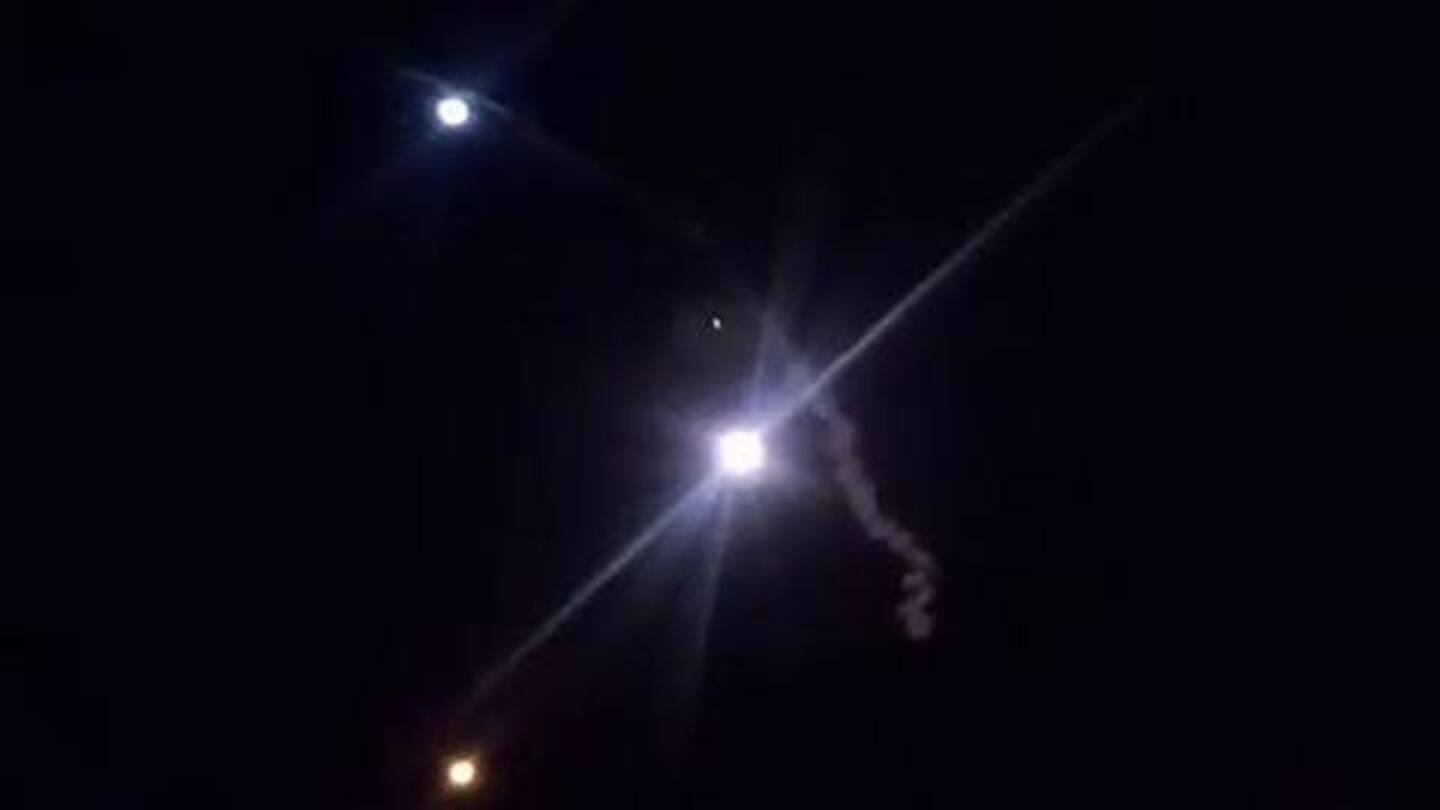
Iran fires missiles at 2 Iraqi bases housing US forces
What's the story
Iran has fired more than a dozen ballistic missiles on two bases in Iraq, that houses forces from the United States, the Pentagon confirmed. Although there were no immediate reports on casualties, Pentagon said it was "working on initial battle damage assessments". This attack comes days after the US killed an Iranian top general in Baghdad and the Islamic nation vowed to take revenge.
Background
Context: With Soleimani's death, Iran and US stared at war
Iran has been baying for US' blood since Qasem Soleimani, the head of elite Quds Force for the Islamic Revolutionary Guard Corps (IRGC), was killed in an airstrike. An adversary of the US, Soleimani was Iran's "hero" and his death sparked more tensions between the arch-rivals. Expressing no remorse over it, States said it eliminated him to protect its people.
Statements
Two military bases was targeted, confirmed Pentagon
On the latest escalation, Pentagon said, "It is clear that these missiles were launched from Iran and targeted at least two Iraqi military bases hosting US military and coalition personnel at Al-Assad and Irbil." Further, a spokesperson revealed these bases were on high alert "due to indications that the Iranian regime planned to attack our forces and interests in the region".
Iran's take
Iran doesn't want escalation but is prepared to defend itself
Separately, Iran's Foreign Minister Javad Zarif said his country doesn't want an escalation but would defend itself. "Iran took & concluded proportionate measures in self-defense under Article 51 of UN Charter targeting base from which cowardly armed attack against our citizens & senior officials were launched, (sic)" Zarif tweeted. And Iranian Revolutionary Guards told the US that retaliation will invite "more crushing response".
Quote
US troops should move out, suggested IRGC
"We advise the American people to recall US troops (deployed in the) region in order to avoid further losses and not to allow the lives of its soldiers to be further threatened by the ever-growing hatred of the regime," IRGC reportedly said
Video
Video showed people ran for cover after Iran's missiles fell
A couple of videos, which emerged on social media, gave an idea of how things changed on the ground after the attack. A clip showed a streak of light moving fast in the night sky and then hitting the ground, creating a ball of fire. Subsequently, people shouted and ran for cover. Clips also showed that the sky was lit for a brief time.
Twitter Post
Here are the spot visuals
#WATCH: Iran launched over a dozen ballistic missiles at 5:30 p.m. (EST) on January 7 and targeted at least two Iraqi military bases hosting US military and coalition personnel at Al-Assad and Irbil, in Iraq. pic.twitter.com/xQkf9lG6AP
— ANI (@ANI) January 8, 2020
Trump's reaction
Reacting to Iran's missile attack, Trump said "all is well"
In his first reaction to the missile attack, US President Donald Trump tweeted "all was well". Calling US military the most powerful and well-equipped in the world he disclosed he will make a statement on Wednesday morning. Notably, Trump, who green-lit the risky operation to eliminate Soleimani, called the Iranian general a "monster" recently and claimed he was planning a "big attack".
Twitter Post
"So far, so good!"
All is well! Missiles launched from Iran at two military bases located in Iraq. Assessment of casualties damages taking place now. So far, so good! We have the most powerful and well equipped military anywhere in the world, by far! I will be making a statement tomorrow morning.
— Donald J. Trump (@realDonaldTrump) January 8, 2020
Concerns
But Presidential candidates are worried about troops stationed abroad
However, 2020 Presidential candidates have expressed concern about US troops stationed in the volatile region. Mentioning the Iranian attack in her address to supporters in New York, Elizabeth Warren advocated de-escalation and claimed Americans don't want a war with Iran. Meanwhile, Joe Biden said he was keeping troops deployed abroad in his prayers. "We hope you'll keep them in yours," Biden tweeted.
Advisory
After attack, US banned airlines from flying over Iran, Iraq
Unwilling to take any risk, US Federal Aviation Administration (FAA) banned all airlines from flying over Iraq, Iran, the Gulf of Oman and the waters between Iran and Saudi Arabia. The regulatory body said restrictions were imposed "due to heightened military activities and increased political tensions in the Middle East, which present an inadvertent risk to US civil aviation operations"